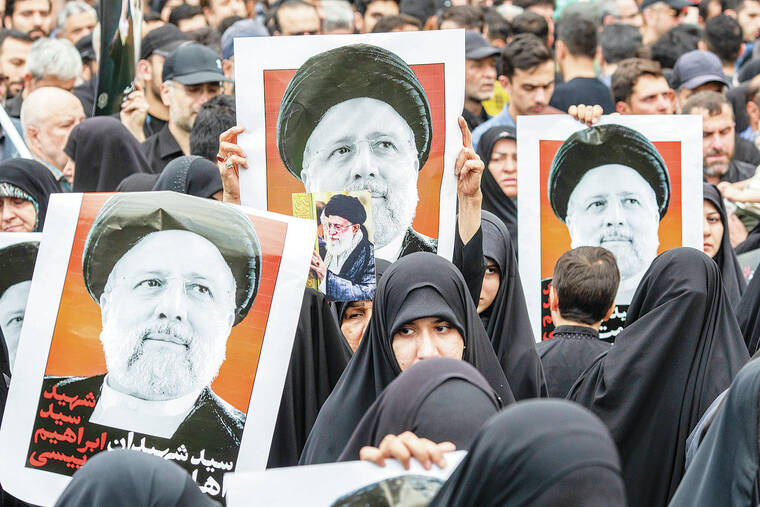Iran moves to project stability after crash kills key leaders
Iran sought to project a sense of order and control Monday by quickly naming an acting president and foreign minister a day after a helicopter crash killed both leaders. The change in leadership came at a time of heightened tensions in the Middle East and domestic discontent in Iran, where many residents have called for an end to decades of repressive clerical rule.
Iran’s supreme leader, Ayatollah Ali Khamenei, announced five days of mourning for the president, Ebrahim Raisi, 63, and the foreign minister, Hossein Amirabdollahian, 60, who died when their helicopter plunged into a mountainous area near the Iranian city of Jolfa. The men had been returning from Iran’s border with Azerbaijan after inaugurating a joint dam project.
ADVERTISING
Iran’s armed forces said they had created a committee to investigate the crash, which state media attributed to a “technical failure.”
Raisi, a hard-line cleric who came of age during the country’s Islamic Revolution, oversaw a deadly crackdown on protesters as the head of the judiciary in 2019 and as president in 2022. He had been widely viewed as a possible successor to Khamenei, 85.
On Monday, Khamenei named Iran’s first vice president, Mohammad Mokhber, acting president and announced that Mokhber would organize elections for a new president within 50 days. A conservative political operative, Mokhber has a long history of involvement in large business conglomerates closely tied to Khamenei.
Iran’s Cabinet appointed Ali Bagheri Kani, a deputy foreign minister, as the ministry’s “caretaker,” the IRNA state news agency reported. Bagheri Kani has served as Iran’s chief nuclear negotiator and was involved in a deal last year that freed imprisoned Americans in exchange for several jailed Iranians and eventual access to about $6 billion in Iranian funds.
Iranian officials said there would be a public procession in Tabriz, the closest big city to the site of the crash, on Tuesday and that the bodies would then be brought to Tehran for a state funeral.
“Raisi was tireless,” Khamenei said in a statement. “In this very sad incident, the people of Iran have lost a valuable and loyal public servant.”
Analysts in Iran said that while there was speculation about who might be elected as the next president, there was little question about the overall stability of the country or the government. They pointed out that Khamenei will remain supreme leader with power over major state policies.
Despite the official calls for mourning, many Iranians welcomed Raisi’s death, seeing him as one of the key figures in a corrupt regime who oversaw the execution of dissidents, used brutal violence to suppress and kill.
© 2024 The New York Times Company





